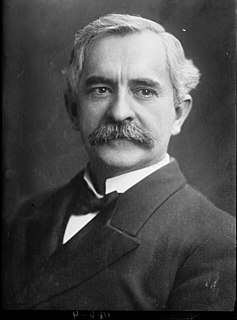A Quote by Aleksandr Solzhenitsyn
Who has the skill to make a narrow, obstinate human being aware of others' far-off grief and joy, to make him understand dimensions and delusions he himself has never lived through? Propaganda, coercion, and scientific proofs are powerless. But happily, in our world there is a way. It is art, and it is literature.
Related Quotes
What people that are professionals in the art world - both in literature and the other arts - always try to do is to recognize the feasibility of making the transition from the particular to the general - to make the transition from the portrait of one postman - to take Van Gogh, for example, to something that is every postman. That synecdotal transition that most selfies don't make. But we who live in this world, and not simply in our private realities, understand that that's the transition our art has to make.
Scientific education for the masses will do little good, and probably a lot of harm, if it simply boils down to more physics, more chemistry, more biology, etc to the detriment of literature and history. Its probable effect on the average human being would be to narrow the range of his thoughts and make him more than ever contemptuous of such knowledge as he did not possess.
How does one chip off the marble that doesn't belong? ... That comes about through five things: humility, reverence, inspiration, deep purpose, and joy. No great man has ever wise-cracked his way to greatness. Until one learns to lose one's self he cannot find himself. No one can multiply himself by himself. He must first divide himself and give himself to the service of all, thus placing himself within all others through acts of thoughtfulness and service.
I need to learn. Joy is at the heart of God's plan for human beings. The reason for this is worth pondering awhile: Joy is at the heart of God himself. We will never understand the significance of joy in human life until we understand its importance to God. I suspect that most of us seriously underestimate God's capacity for joy.
When we think of God, we are apt to think of Him in human form. In the Epiphanies of the Old Testament God revealed Himself to Joshua and others in human form. He puts Himself within the compass of our highest conception, in order that He may make Himself real to us in His love and sympathy and power.
It takes skill to bring something you've imagined into the world: to use words to create believable lives, to select the colors and textures of paint to represent a haystack at sunset, to combine ingredients to make a flavorful dish. No one is born with that skill. It is developed through exercise, through repitition, through a blend of learning and reflection that's both painstaking and rewarding. And it takes time. . . . If art is the bridge between what you see in your mind and what the world sees, then skill is how you build that bridge.
Kafka often describes himself as a bloodless figure: a human being who doesn't really participate in the life of his fellow human beings, someone who doesn't actually live in the true sense of the word, but who consists rather of words and literature. In my view, that is, however, only half true. In a roundabout way through literature, which presupposes empathy and exact observation, he immerses himself again in the life of society; in a certain sense he comes back to it.
Every work of art causes the receiver to enter into a certain kind of relationship both with him who produced the art, and with all those who, simultaneously, previously, or subsequently, receive the same artistic impression. Art is a human activity- that one man consciously by means of certain external signs, hands on to others feelings he has lived through, and that others are touched by these feelings and also experience them.




































